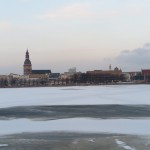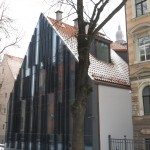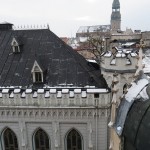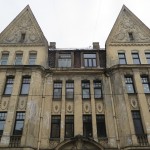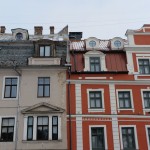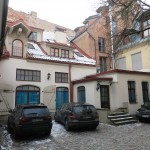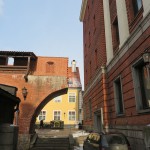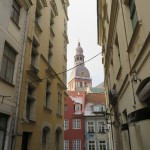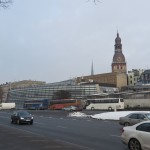Useful Riga experience
Director of the Agency G. Rutkauskas visited Riga in Feb 13-14th, 2018. The visit aimed discussion on Riga Historic Centre’s planning regulations and their application practise with Latvian colleagues.
The content and practical use of Riga Old Town Protection Plan was debated with Aigars Kuskis, Deputy Director of Urban Development Department of Riga City Municipality. Mr. Kuskis informed that their Department abolished the Division of Cultural Heritage in 2015, but the Division was re-established again in Feb 2018 because of high needs in city’s heritage management. He emphasized continuous non conflict situation regarding new developments restorations existing due to an effective work of cross-institutional Council working since 2006. Members of the Council from state, municipal and professional sectors solve all conflict situations through open professional critical dialogue, obligatory recommendations and decisional voting. Publicity of the decisions of the Council in the long-term changes perceptions and understanding of local community why and how historic properties have to be protected and maintained. The general understanding tends towards stronger protection of remaining authentic heritage values and more flexible towards reconstructions, upgrade and use of less valuable, not authentic ones. The concession of real estate is applied by Municipality in the case of proper maintenance of protected buildings. The real estate taxes may be reduced up to 50 % for 5 years period (after the concession may be prolonged). This incentive strongly inspires owners’ progress in their attitudes and property maintenance.
Another meeting was held with Dr. Juris Dambis, Head of Latvian State Inspection for the Cultural Heritage, and Agnese Rupenheite, Deputy Head of the Inspection. Dr. Dambis said that after Riga Charter on Cultural Heritage Reconstruction was accepted in 2000 (with representatives of UNESCO World Heritage Centre, ICCROM, ICOMOS, heritage conservation authorities from Tallinn, Vilnius, Minsk, Lvov and Kiev) there are nearly no more questions regarding recreation of lost heritage buildings. There were no exceptional cases of historic reconstructions since 2000. The Blackheads House reconstructed in 2000 is evaluated in the Old Town Protection Plan as a valuable object, but not as the highest value. The Town Hall building recreated at the same time is evaluated as not valuable building allowed for reconstruction. Dr. Dambis thinks that reconstruction of historic urban structures is outdated method of urban conservation. Though such an approach was still popular in Latvia in 1990-ies, later after 2010 public and professional attitudes changed because of number of international thematic conferences and seminars. He considers nowadays optimal historic area urban preservation management should be built on rational equilibrium between strong protection of the high grade protected buildings and adequate reconstruction, upgrade of less valuable ones; and the most experienced urban planners, architects and conservators should take the responsibility resolving it; decisions should not be left for politicians or groups of interests. Experts of Riga‘s cross-institutional Council takes responsibility deciding all related issues and does it very well. Dr. Dambis suggested international organisations and experts to be more openly involved into public discussion process on Vilnius Old Town Protection Plan; he kindly suggested his participation and co-operation in the process.



